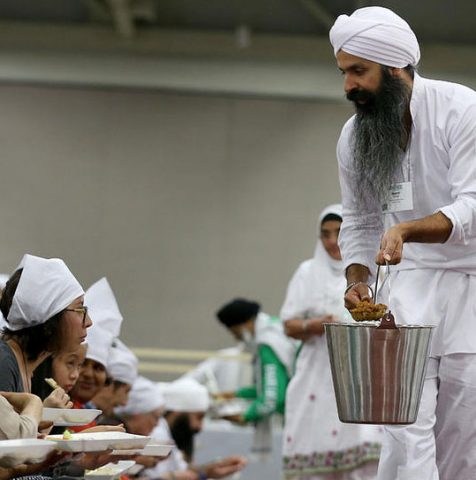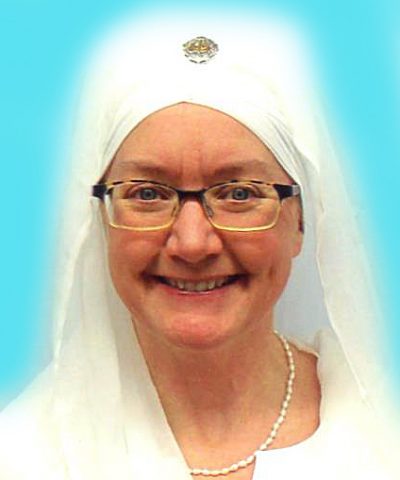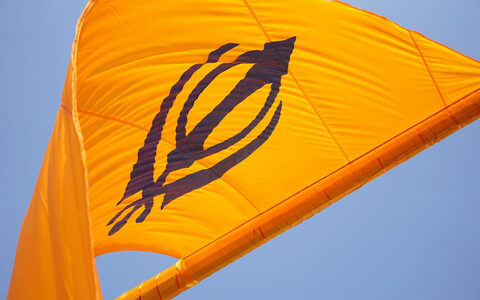by SS DukhNiwaran Kaur Khalsa, Chicago IL
Summer 2019
At this year’s Baisakhi celebration in Los Angeles, I had the profound honor of meeting with Dr. Roop Singh, Secretary of the Shiromani Gurdwara Parandhak Committee (SGPC). Members of the Dharmic Office of Public Affairs, the International Khalsa Council’s LGBTQ+ Task Force, and representatives of the Los Angeles Guru Ram Das Ashram gathered for this discussion about LGBTQ+ issues in Sikhi.
Our meeting was an informal and cozy breakfast held at the Bhai Sahiba Bibi Inderjit Kaur’s home, hosted by her children SS Kulbir Singh and SS Kamaljit Kaur in her absence. This environment not only set a relaxed tone for this historic and potentially controversial meeting, but it infused the meeting with a sense of family. As friends old and new shared food, jokes, and stories, the meaning of family was delivered—in particular, the importance of Sikh family.
For LGBTQ+ people, family is very important. Many LGBTQ+ people are disowned by their biological family and their faith community. Many of us find a place for our longing to have family and faith in the Sikh path. Meeting this longing and finding a place in our Sadh Sangat for LGBTQ+ people is the call of our times. As the Siri Singh Sahib said so beautifully:
“Guru Nanak said, ‘Recognize, my friend, don’t let yourself down, don’t let down anybody, and don’t participate in letdown. What are you doing? God created everybody and we are all one. This is the spirit soul. All souls at this time are there, not good, not bad, not beautiful, not ugly, not right nor wrong.’” (August 18, 1996 Espanola Gurdwara)
The Call of Our Times
Answering this call as Ministers, we can break this cycle of heartbreak for LGBTQ+ people who are reaching out to live in the sacred space of Sikh Dharma. Answering this call as Ministers, we can cross cultures and find points of connection within our global Sikh family. One of the points of connection I learned about in this meeting is that our Sikh sangat in the Punjab includes LGBTQ+ people in some significant ways. 
Although the prohibition of LGBTQ+ people from having an Anand Karaj (Sikh wedding) is in force, there are no restrictions for LGBTQ+ people to serve langar, do ishnaan seva, perform kirtan, and participate in the Amrit Sanchar (take Amrit) as openly LGBTQ+ sangat members.
I was happily surprised that the prohibition against Sikh marriage did not affect all aspects of Sikh life for LGBTQ+ people in the Punjab.
We went on to discuss culture, family, and tradition in Sikh Dharma. I learned of the depth of devotion of Punjabi Sikhs and the fierceness with which they hold traditions.
What impacted me was that this devotion and fierceness brings with it a richness of Ang Sang Wahe Guru—the devotion of generations of Sikhs embodied cellularly in the Punjabi Sikh people. And I understood the gift that this deep devotion brings to our comparatively young Sikh sangat in the Western Hemisphere. This was the context for understanding the enormity of our task and the gifts of our shared commitment to working together.
About the Author
 SS DukhNiwaran Kaur Khalsa works to create a more welcoming community in our Legacy organizations for LGBTQ+ people. Partnering with KRI, 3HO, and as a member of the International Khalsa Council, she has helped break the silence about the realities of LGBTQ+ members, opening up opportunities for all of us to live authentically at the feet of the Guru. She is a Sikh Dharma International Minister, Professional Kundalini Yoga Teacher Trainer, and spiritually-oriented psychotherapist. Her service to our communities involves working with Sikh Dharma International, the KRI Level 3 Steering Committee, the Diversity and Inclusion Committee, the International Khalsa Council LGBTQ+ Task Force, TTEC, and 3HO Summer Solstice Hospitality.
SS DukhNiwaran Kaur Khalsa works to create a more welcoming community in our Legacy organizations for LGBTQ+ people. Partnering with KRI, 3HO, and as a member of the International Khalsa Council, she has helped break the silence about the realities of LGBTQ+ members, opening up opportunities for all of us to live authentically at the feet of the Guru. She is a Sikh Dharma International Minister, Professional Kundalini Yoga Teacher Trainer, and spiritually-oriented psychotherapist. Her service to our communities involves working with Sikh Dharma International, the KRI Level 3 Steering Committee, the Diversity and Inclusion Committee, the International Khalsa Council LGBTQ+ Task Force, TTEC, and 3HO Summer Solstice Hospitality.


